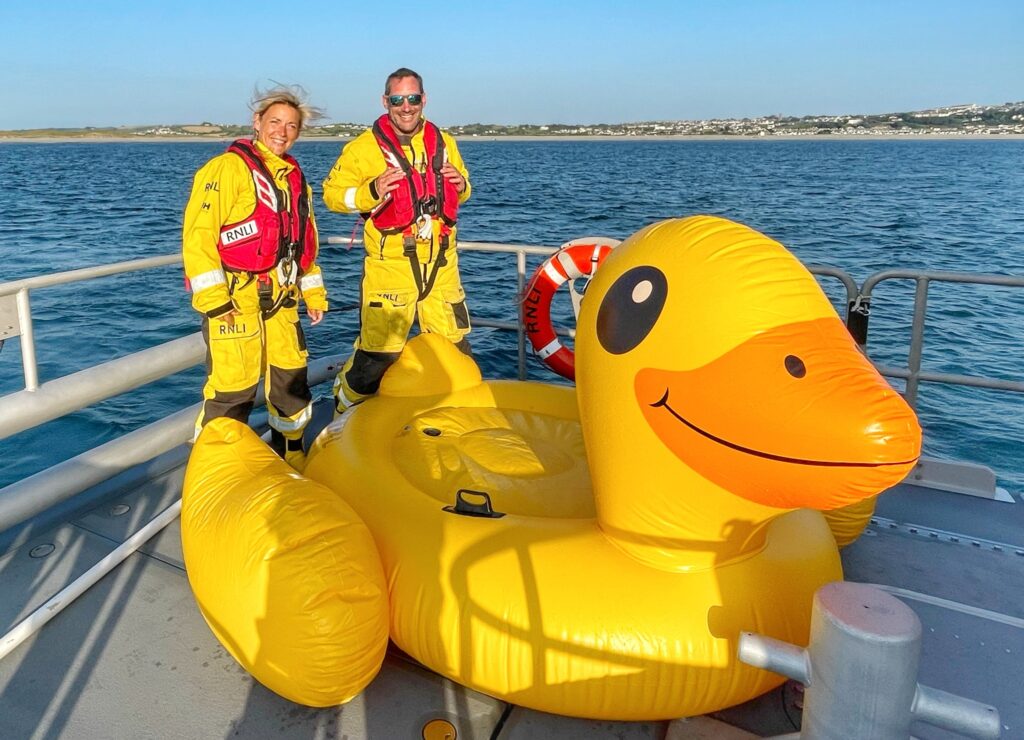
RNLI pleads with SUP and other paddlers to ‘think carefully’ before setting off
A step change in the number of paddleboarders needing to be rescued around the UK has prompted a new safety campaign to encourage people to think about the weather and tides before setting off.
The RNLI and British Canoeing have joined forces to focus on stand-up paddleboarders (and other paddle sports) after a significant increase in rescues.
Figures show the number of lives saved while kayaking or canoeing by RNLI crews more than doubled last year in comparison to 2021 (from 11 to 24), while RNLI lifeboat crews saw a 21 per cent rise in launches to paddleboarders (144 rising to 175) across the UK and Ireland, in comparison to 2021.
The crews at Trearddur Bay, Moelfre, Holyhead and Beaumaris (Anglesey) have seen the number of people rescued while taking part in these activities rocket from six in 2021 to 37 people in 2022.
“Many of our calls are to people being blown out to sea in offshore winds,” says Vince Jones, RNLI mechanic at Moelfre. He says they’ve been inundated with calls to stand-up paddleboarders. “We ask people to think carefully about the weather and tides before setting off and ensuring they have a means of calling for help.”
Already reported from the last few days (28-31 July 2023), the RNLI was called to paddleboard rescues at Skegness (boy and grandfather in distress at a considerable distance from the shore, struggling against offshore breeze), Llandudno (two paddleboarders struggling against a strengthening offshore wind), Looe (male unable to make any headway against the offshore winds back to the beach), and Dunbar (false alarm — two females did not require assistance and were suitably equipped with buoyancy aids and a mobile phone).
Is inexperience the problem?
In May 2023, results from the previous year’s Watersports Participation Survey were released, with Lesley Robinson, CEO of British Marine, noting that the pandemic boom had continued. However, she noted that the trend for paddle sports activities appears to be “still for more infrequent, experiential participation rather than regular participation.” This may be why the RNLI needs to issue the same warnings regularly. This new warning follows one in May 2023.
But, even experienced participants get into trouble. Guy Lowdes, from Llandegla was with 10 other kayakers when he needed rescuing.
“My kayak was capsized by a rogue wave and I found myself in the water on a very cold December afternoon,” says Lowdes, an experienced coastal kayaker. “The tide pushed me one way and my boat the other, I must have been in the water about 20 minutes.”
Lowdes friend remained with him and used a Personal Locator Beacon (PLB) to call for help. A rescue operation was mounted including a helicopter and RNLI crews from Holyhead and Moelfre.
“I’m just so grateful we had a means of calling for help, so we could alert the RNLI to exactly where we were located. I was starting to feel incredibly cold and poorly despite wearing a dry suit. I’m convinced if I’d have been there any longer with the failing light, we may never have been found.
“Once the RNLI arrived and I was taken onboard Holyhead’s lifeboat, the adrenaline stopped. I felt very unwell and cold. I’m so pleased to be here today sharing my story and hoping people take heed of the RNLI’s advice and never set up without having the necessary equipment. My story just goes to show how dangerously unpredictable the sea can be.”
Inflatable drift

In June, HM Coastguard issued a stark warning that inflatables are not for the coast after beachgoers in the UK had to be rescued after going to sea in paddling pools and other inflatable toys, while a paddleboarder was credited as a ‘real lifesaver’ after assisting three men on a giant inflatable duck as it drifted out into the Bristol Channel.
Earlier this year a 17-year-old girl was rescued by a containership after being swept out to sea on a paddle board. Erica Vicente was standup paddleboarding just off the beach in Vila Real de Santo António, Portugal, when strong winds swept her away from the shore, leaving her unable to paddle back.
The RNLI and British Canoeing’s safety advice is to:
- Wear a buoyancy aid or personal flotation device.
- Carry a means of communication to call for help in an emergency.
- Check the weather before heading out.
- Tell others of your plans so they know when you will be returning.
- Paddle within your ability.
The post RNLI pleads with SUP and other paddlers to ‘think carefully’ before setting off appeared first on Marine Industry News.
